“Adaptability stands as one of the most valuable attributes we can cultivate in this environment.”Dr John Kinniburgh, Headmaster

Toowoomba Grammar School (TGS) has consistently prepared young men for life and work beyond the School gates.
This commitment is reflected in how, for generations, our Old Boys have maintained strong connections with the School and their region, demonstrating a dedication to making a meaningful difference in the world.
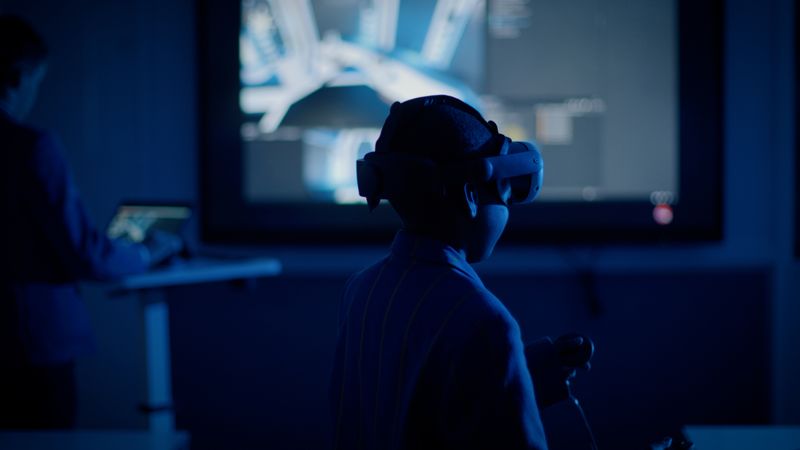
Honouring the Past, Preparing for the Future
The Grammar 150 celebrations this year offer a special opportunity to reflect on the significant contributions of our former students who have achieved remarkable success locally, nationally and internationally.
As we honour this legacy, we must also look forward. A TGS education has long equipped graduates for both specialist and generalist pathways. The world our boys are entering today, however, is far more complex. Rapid advancements in technology, including automation and artificial intelligence, are transforming industries, presenting both challenges and unprecedented opportunities.
In this context, schools like TGS must anticipate societal changes, the evolution of industries and the careers our students will pursue. This is no simple task. It requires balancing the wisdom of the past 150 years with the need to adopt new approaches fit for the future.
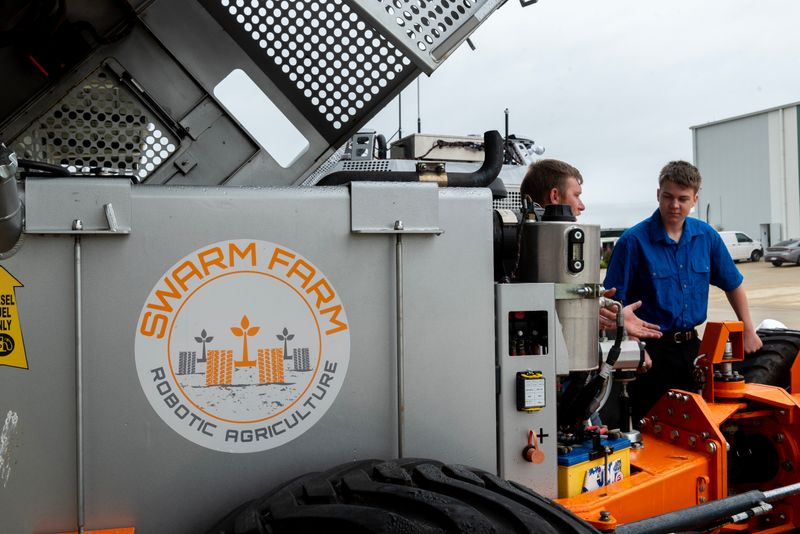
The Case for Innovation in Education
Our core purpose is “to educate boys and develop their good character for life,” and it is this focus on character that forms the rich foundation of learning at TGS. Character development underpins adaptability, it ensures boys are equipped to navigate, embrace and lead change. This is a crucial focus for schools like ours in today’s dynamic environment.
Change is constant in the modern world. As educators, we recognise this reality and accept the responsibility of preparing our students for an ever-evolving society. Our challenge is to maintain relevance amidst the rapid advancements in technology, industry and social dynamics.
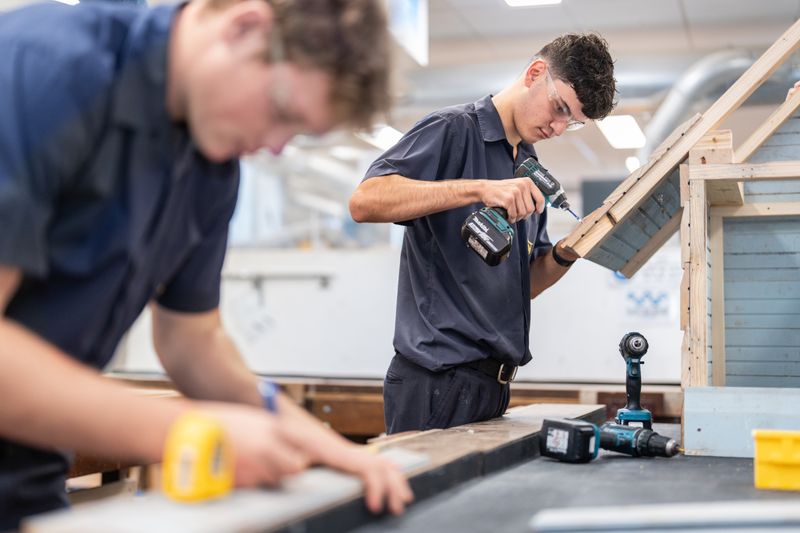
In response, TGS continues to uphold its traditional commitment to building deep knowledge while embracing research-informed approaches to teaching and learning. Given the speed of global change, it is vital that boys leave TGS with a diverse toolkit of skills and frameworks that allow them to respond thoughtfully and confidently to uncertainty and opportunity.
Innovation plays a central role in this. While the term is often misunderstood or diluted, genuine innovation in schools should be measured by improvement and impact, not by novelty factor. There is a tendency in education to layer new initiatives onto old systems, creating complexity rather than clarity. Innovation is not a veneer of new technology, a flashy idea or a gimmick. It’s about refining our practices so we can do things better and help students understand how to do the same in the world beyond the School.
Equipping Boys for an Evolving World
The landscape awaiting a TGS graduate is dynamic and multifaceted, characterised by emerging technologies and complex global demands. These include climate change, environmental sustainability, geopolitical instability, shifting economies, global health challenges and rising expectations around social responsibility and ethical leadership. Navigating such a landscape requires more than technical knowledge. It calls for adaptability, critical thinking, cultural awareness and a capacity to lead with confidence and integrity.
Teaching must, therefore, extend beyond mere content delivery. Through our approach, we equip boys with both the mindset and skillset to thrive amid uncertainty and contribute meaningfully to the communities and industries they will one day shape. In this context, innovation isn’t about chasing trends but about thoughtful progression, embracing necessary change while remaining grounded in our values and traditions.
Innovative thinking requires a solid foundation of knowledge. From this base, students learn to make connections across disciplines, synthesise ideas and apply their understanding in practical and imaginative ways. Such cumulative learning deepens understanding and helps shape career pathways aligned with personal interests and community needs.
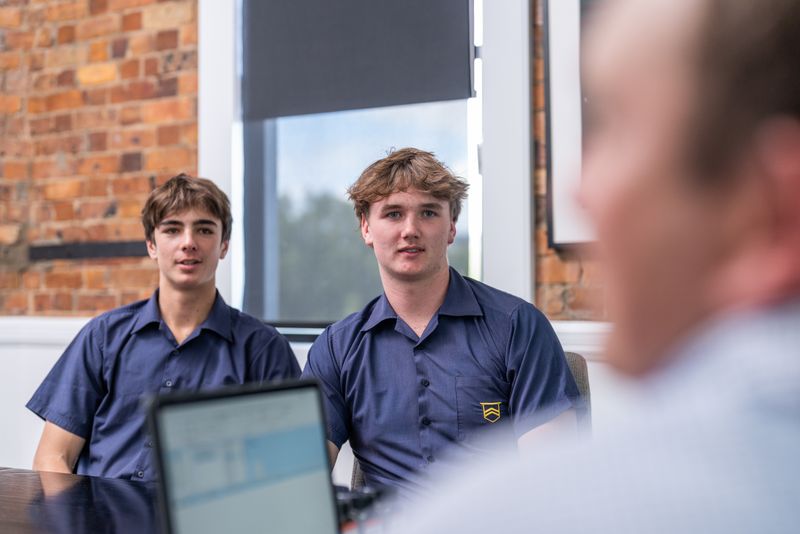
At TGS, we view innovation as solving real-world challenges with creativity, care and purpose. By drawing on the collective wisdom of our staff, alumni and regional partners, we promote equitable learning that balances specialised expertise with broad and transferable capabilities. Our students connect their learning to the world around them, preparing not only for emerging trends and opportunities but also for essential trades and traditional professions.
This generation of learners is distinct. Today’s boys are digital natives: information-savvy, globally aware and purpose-driven. Many are also deeply committed to making a meaningful contribution with an entrepreneurial spirit and appetite for relevance. Therefore, we have an obligation to provide educational experiences that stretch their thinking and nurture their sense of responsibility.
They are also coming of age at a critical time for Australia. Our nation faces a shrinking skilled workforce, particularly in trades, care industries and technology. Demographer Simon Kuestenmacher warns that by 2030, more than 20% of Australia’s current tradespeople will have retired, with fewer than half the professionals needed to replace them. This looming shortfall creates both a challenge and an opportunity for our students.
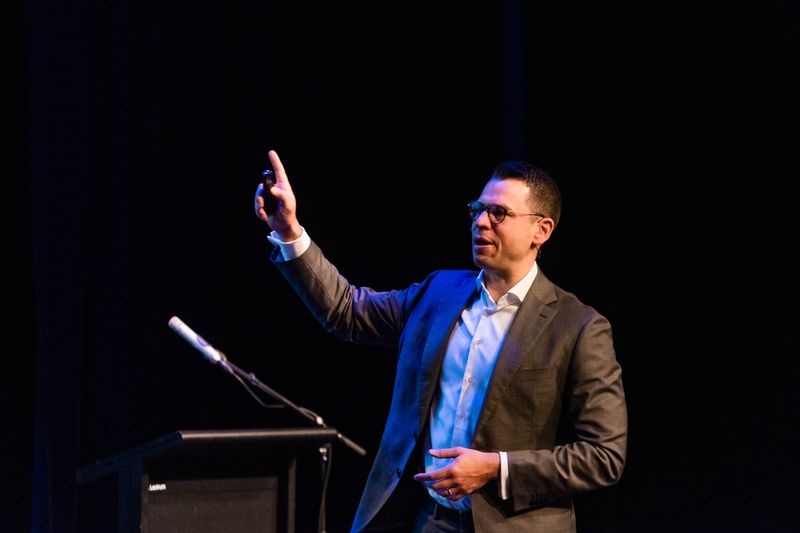
TGX: A Grounded and Future- Focused Program
These challenges are particularly pronounced in Queensland, where the regional economy depends on a blend of traditional industries and emerging sectors. In the Darling Downs, for example, the $1.27 billion agricultural industry must be sustained alongside growing workforce needs in healthcare, education and technology services.
TGS fosters this quality through diverse learning experiences, reflective practices that build self-awareness and a setting that nurtures curiosity and creativity. Academic rigour and applied learning work hand in hand, helping boys become comfortable with uncertainty while developing the resilience to lead in a rapidly changing world.
To address these evolving demands, both global and local, Toowoomba Grammar School is developing an integrated approach to education that connects learning with real-world challenges. Central to this vision is TGX, a program designed to help students explore meaningful problems and develop real solutions.

Grounded in the key contexts of regional Australia, agriculture, industry and the environment, TGX encourages boys to think critically and act practically. Through partnerships with industry, the use of design thinking and a strong focus on implementation, not just ideas, students are supported to move from concept to outcome. Whether it is improving water use in agriculture or addressing sustainability in local industries, TGX challenges boys to apply their learning in ways that are relevant, purposeful and enduring.
This work is supported by the School’s outstanding new facilities, including the Design, Engineering and Technology Centre and the Agriculture and Industry Centre. These spaces allow boys to explore hands-on design, engineering, technologies and trades in an environment that reflects the industries they may one day lead or engage with.
Learning with Purpose and Impact
We believe that boys must learn not just to think but to act and to understand how their thinking connects with the world around them. That’s why our learning experiences prioritise both the process and the outcome. We provide meaningful feedback from staff and industry mentors, helping boys reflect, iterate and grow.
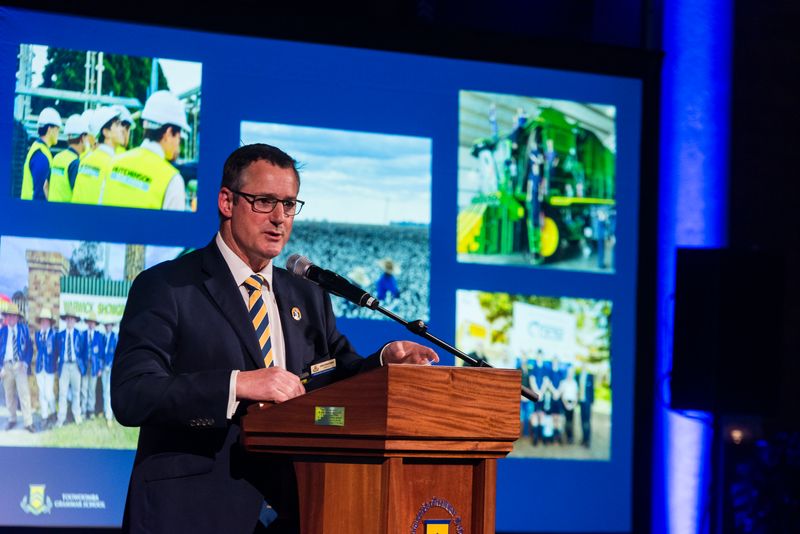
At Toowoomba Grammar School, we are not replacing tradition, we are building on it. By combining a strong academic foundation with opportunities for applied, contextual learning, we are preparing boys to be capable, adaptable and confident contributors to their communities and their future world.
FIDELIS IN OMNIBUS
Latest Blog
Gaining Ground with a Growth Mindset
I have seen the posters. I have sat the assemblies. I have watched the ads telling us about growth mindsets and how to develop one, and I'm sure you have too. But what we don't do is apply it to ourselves to help benefit our lives, however, there is no reason to blame yourself. The growth mindset is a deep topic that has many layers to it and is extremely important to have today. While we might blame other things on our weaknesses, it all links back to one thing – our mindset. To benefit our…
Sleeping Away the Mental Health Crisis
Two in five. That’s how many young Australians between the ages of 16 and 24 have experienced a mental disorder in the last 12 months (ABS, 2022). Let that sink in. Think of your closest five mates. Odds are that two of them are suffering right now from a crippling mental illness. According to recent studies conducted by the Australian Bureau of Statistics, Australia is witnessing an unprecedented rise in mental health issues among its youth, leaving them vulnerable and struggling (Headspace,…
Time for a Wake Up Call
Did you know that one in five 12–17-year-olds average over 8 hours of screen time a day? That means that in a 14-hour day, 57% of their waking hours involve looking at a screen! This madness is contributing to a very significant problem all teenagers face - sleep deprivation. It is killing us. We are becoming walking zombies rather than happy, growing lads. However, we can end this treacherous technological tyranny by putting down our screens before bed. Stop and think for a second. How much…
Breaking the Stigma
Strangling you in chains. Smothering you in despair. Anxiety and depression can be mighty beasts to break free from. Unfortunately, the state of traditional masculinity is reinforcing these chains. Mental health is a major threat to the well-being of men. This cage constructs barriers and borders which limit their ability to thrive in the modern world. Traditional Masculinity refers to a set of societal expectations foregrounded through the centuries by gender roles, stereotypes and beliefs.…
The Power of Gratitude
“What do you say mate?” your mum nudges you as the waitress hands you your dinosaur nuggets. “Thank you.” You have always been told to use good manners, and to say thank you, but what does thank you actually mean? Is it just two meaningless words uttered with monotonous regularity, or is it a tool that can alleviate mental health issues generating happiness and a sense of wellbeing? Gratitude is the sunlight that lights up those dark days. The ability to be grateful is at the core of personal…
The Silent Epidemic: Unveiling the Consequences of Sleep Deprivation
“Sleep that soothes away all our worries. Sleep that puts each day to rest. Sleep that relieves the weary laborer and heals hurt minds.” William Shakespeare (Macbeth, 1606) Heart Disease, Cancer, and Alzheimer's. Three life-threatening diseases. Three diseases all linked to lack of sleep. According to Dr. Okorie from the children’s health division of Stanford University, “7 out of 10 high school students are falling short of… (sleep) on school nights.” The Bulk of American teens are not getting…
Tik Tok - From Fun to Fear
Social media platforms have ingrained themselves into our daily lives in a time when technology is constantly evolving and drawing millions of users with seductive features and never-ending streams of captivating content. Among these, TikTok has become a worldwide phenomenon, captivating users with its viral challenges and short-form films. Underneath the fun and inventiveness however, there is growing concern about the risks connected to TikTok and other social media platforms. TikTok's…
Active Procrastination – Unlocking the Gates of Time
“Procrastination is like a credit card: it’s a lot of fun until you get the bill.” - Christopher Parker – professional actor. Unfortunately, procrastination is a term that we are all familiar with as students; the vast majority of us have experienced it firsthand. It saps our time and results like a parasite, a burden on its host. However, despite it’s reputation, recent studies have shown that when harnessed correctly, procrastination can be a powerful tool to improve both academic efficiency…
It Takes a Village...
The Toowoomba Grammar School Boarding community plays a pivotal role in shaping the young minds of our boarders and instilling values whilst creating a sense of mateship that can last a lifetime. The nurturing and supportive network of staff not only ensure a safe and structured environment but also cultivates a sense of belonging and camaraderie among the boys. ‘The staff supply the fuel to the ship but ultimately it is the boys who steer it and decide upon its final destination’. Our TGS…